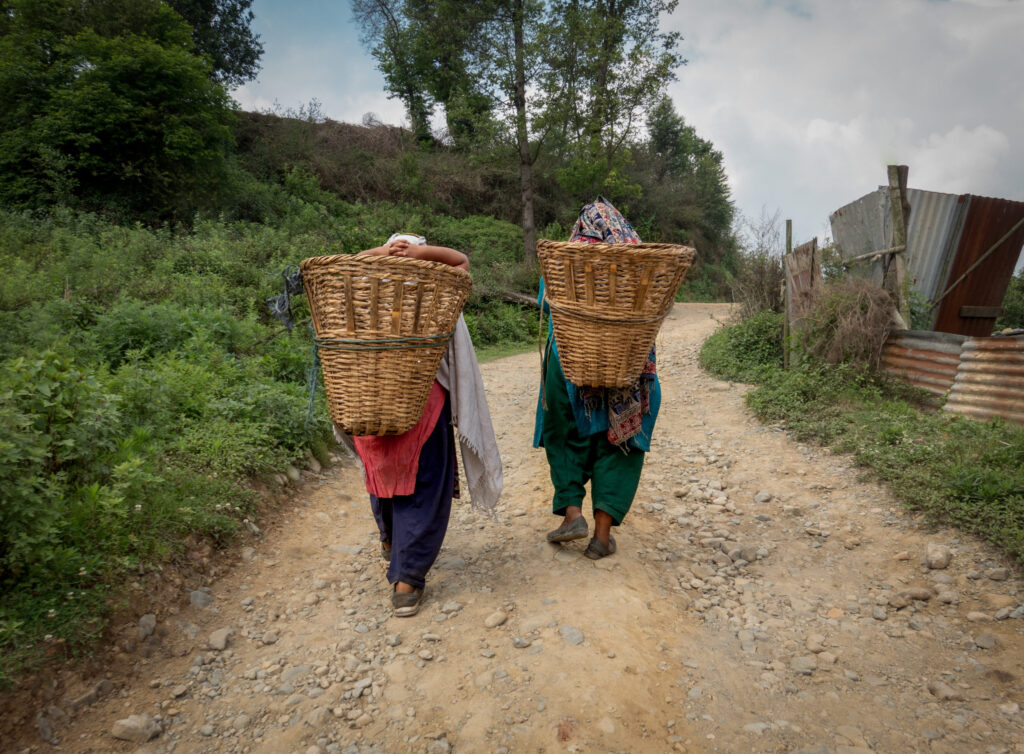Teton Science Schools’ Field Education Instructor Alex Sivitskis coauthored a study about place-based education and ethnomathematics titled: “Place-Based Approach to the Praxis of Ethnomathematics Education: Investigating Woven Bamboo Doko of Southern Bhutan.”
The study, led by Mr. Purna Bahadur Subba, was grounded within the community as a Place-Based Education (PBE) classroom principle. Alex was involved actively as a PBE guide. Three additional research team members included Ms. Purnima Rana, Mr. Bir Bahadur Blon, and Mr. Ratna Bahadur Dahal, who were all in the final year of their M.Ed Mathematics Degree program at the Samtse College of Education.
Reflecting on the recent publication, lead author Purna Bahadur Subba shared, “This is the first research on ethnomathematics in Bhutan. We hope this synthesis can offer an entry point for additional research and applications of the country’s deep possibilities of ethnomathematics study. As a unified nation with a diverse span of identities, a growing tradition of ethnomathematics research could be a solid step towards the preservation and promotion of culture.”
Purnima Rana shared, “All of us had a different way of looking at this project, and when we triangulated our thought and views, it generated a beautiful idea.“
The research team is now actively considering the next steps to continue investigating the concept of ethnomathematics in Bhutan. Initial ideas involve developing teaching-learning activities that are rooted in the Teton Science Schools’ place-based principles.
When envisioning these future scenarios, Purna Bahadur Subba shared that the possibilities for place-based educational approaches are truly endless. “In one lesson, students could visit a nearby rural village community where the people weave and use Doko for their daily purpose. This activity can be designed to learn about Doko in three aspects: economy, ecology, and culture.”
Following their introductory visit, Purna Bahadur Subba described how students could build out their experience using an inquiry-based approach, “Students could interview basket weaving experts on a variety of topics, from what patterns are used in basket construction to what measures are taken to harvest choya bans, the bamboo that is used to make these baskets.”
Ratna Bahadur offered, “When there is already a Doko available in the community, it is easy for a Mathematics teacher to teach different concepts as mentioned above, thus, making it livelier and more enjoyable; this is the charm of ethnomathematics.”
Bringing this community asset back to the classroom could also open a whole new opportunity for student-centered learning. Geometry, trigonometry, and number sequences are all common topics that Bhutanese mathematics teachers need to cover with their students. Purnima Rana described, “If the students are taught using this locally available product it will enhance in their understanding of the concept which otherwise is very difficult for them to comprehend.”
Future Studies
The team is also set on future studies in ethnomathematics, recommending studies on both Doko and other elements of culture that can be found across Bhutan. Purna Bahadur Subba shared, “Other topics that are relevant for future work could include weaving, drawings, paintings and rituals that are being practiced throughout Bhutanese culture, traditions, and festivals.” He contends that these Bhutanese cultural/traditional practices are rich in ethnomathematics, “From applications of discrete mathematics in artisan crafts to the use of probability in shamanic healing, ethnomathematics is present and used within many ethnic groups across Bhutan.”
Finding future research projects will be a priority, and the team is looking toward possibilities.
The research study is presented in a recent publication of the Journal of Mathematics and Culture.
The Samtse College of Education at the Royal University of Bhutan (RUB) has joined Teton Science Schools in a collaborative partnership to promote PBE since 2008. Making progress in place-based educational research has become an important component of this evolving relationship. Building on this enthusiasm and interest, members of the Samtse College Department of Mathematics and IT Education sought to investigate local opportunities for ethnomathematics education.


